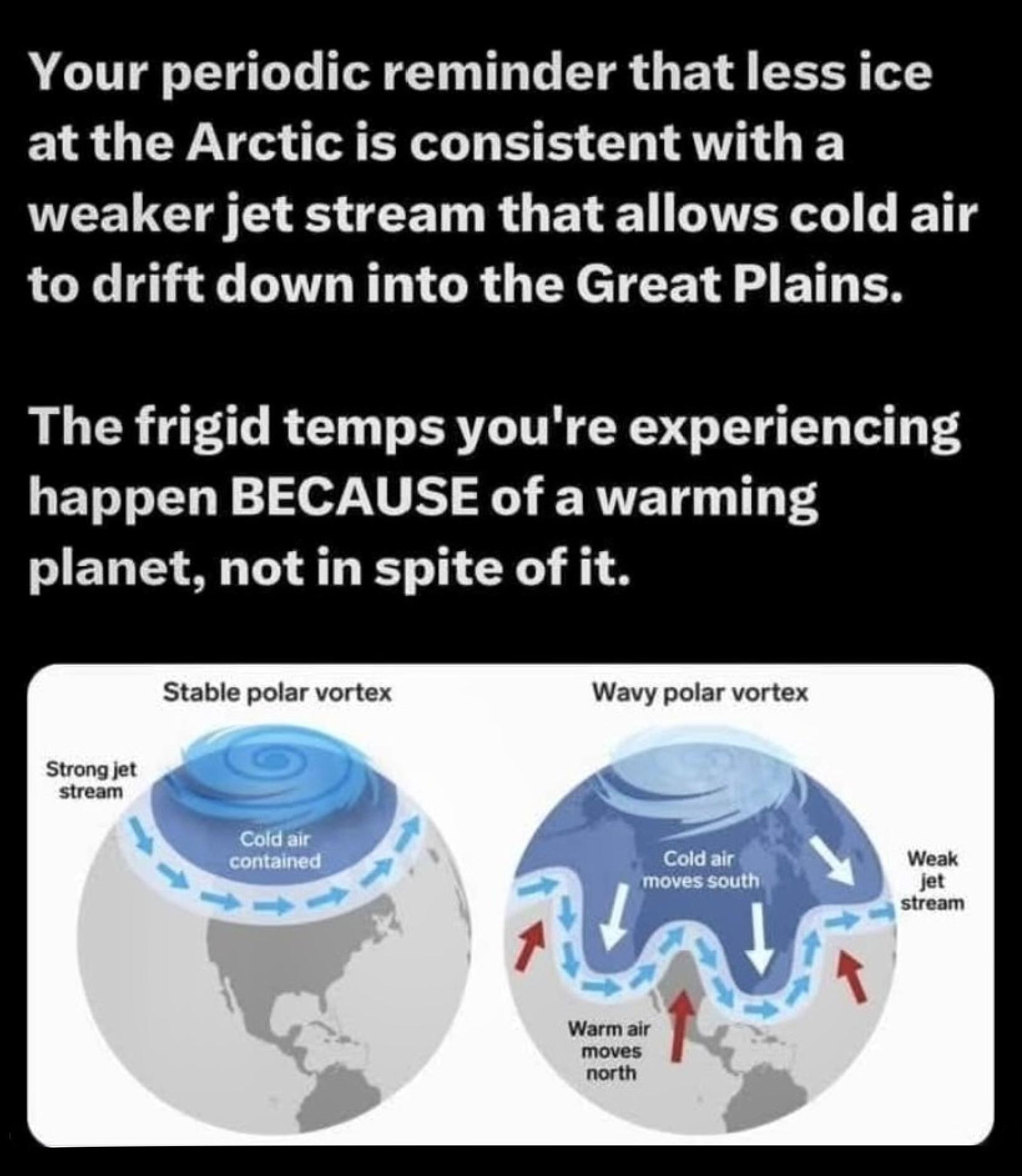Weird, we're experiencing the opposite in Europe.
Science Memes
Welcome to c/science_memes @ Mander.xyz!
A place for majestic STEMLORD peacocking, as well as memes about the realities of working in a lab.

Rules
- Don't throw mud. Behave like an intellectual and remember the human.
- Keep it rooted (on topic).
- No spam.
- Infographics welcome, get schooled.
This is a science community. We use the Dawkins definition of meme.
Research Committee
Other Mander Communities
Science and Research
Biology and Life Sciences
- [email protected]
- [email protected]
- [email protected]
- [email protected]
- [email protected]
- [email protected]
- [email protected]
- [email protected]
- [email protected]
- [email protected]
- [email protected]
- [email protected]
- [email protected]
- [email protected]
- [email protected]
- [email protected]
- [email protected]
- [email protected]
- [email protected]
- [email protected]
- [email protected]
- [email protected]
- [email protected]
- [email protected]
- !reptiles and [email protected]
Physical Sciences
- [email protected]
- [email protected]
- [email protected]
- [email protected]
- [email protected]
- [email protected]
- [email protected]
- [email protected]
- [email protected]
Humanities and Social Sciences
Practical and Applied Sciences
- !exercise-and [email protected]
- [email protected]
- !self [email protected]
- [email protected]
- [email protected]
- [email protected]
Memes
Miscellaneous
Last time that much fresh water got dumped in the Atlantic ocean (when the glacier over north america melted) it resulted in an ice age over Europe... So... Good luck guys 👍
I swear just a few years ago it was polar vortex this polar vortex that on the news everyday about the cold weather and I haven't heard it once this year.
Will the increased snow cover at lower latitudes reduce warming? (I'm guessing probably yes, due to increased albedo. But, snow is also an insulator, and might be holding ground heat. I don't know which effect will be greater.)
If it does reduce warming, will the amount be significant relative to anthropogenic climate change? (I'm guessing probably not.)
And just out of curiosity, did the Southern Hemisphere experience similar polar disturbances last winter, or in the past few years?
The problem here is that the snow will melt at some point. The reason this is happening is because the sea ice that existed year-round until now is nearly gone each summer. The lack of consistent ice covering means that there is a greater amount of energy being absorbed by the ocean, perhaps not year-round, but that it's happening so much more in the summer is sufficient to utterly outweigh any amount of temporary snowfall anywhere else on the globe.
The graphic isn't all that accurate. The text says a colder period is because of a warmer planet but then the cold area from a meandering jet stream looks larger. The missing part is the warmer air that leaks into the polar areas, causing a feedback loop by further deteriorating the balance of cold and warm that drives the jet stream.
Good luck convincing the rubes that. Literally heard jokes about "global warming" today in the office. Had to say, well its climate change actually and wild shit means its not doing good.
Should have called it "climate instability" or "climate chaos" from the start.
Easy money.
"It's cold as fuck because a monster bolus of hot air hit the arctic from the other side of the planet, sent a chunk of the polar vortex down here. Heat directly caused this. Did you have a problem with the word 'bolus', or perhaps understanding the Earth is spherical? Was 'spherical' too big a word? I can dumb this down if need be."
Yeah except I myself didnt know that directly either. I just knew that, no, this is because of climate change not in spite of it.
